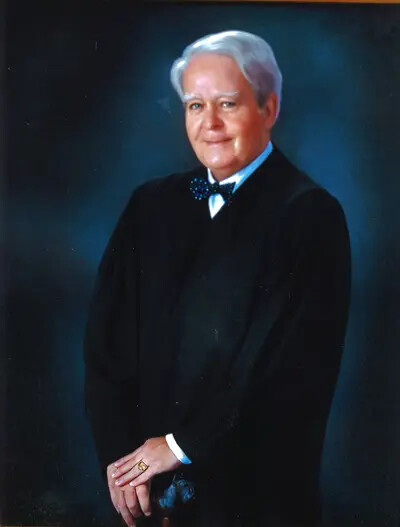Judge Armstrong to Speak at Commencement

The Honorable Paul W. Armstrong (Ret.), a nationally recognized pioneer of patients’ rights, will deliver the commencement address at Raritan Valley Community College’s annual spring commencement, Saturday, May 12, at 10 a.m. Judge Armstrong will receive an honorary degree during the ceremony, which will be held on the soccer field at the College’s Branchburg campus.
More than 1,200 students are expected to be awarded associate degrees or certificates.
Paul W. Armstrong served as a New Jersey Superior Court Judge from 2000-2017. He was assigned to courthouses in Somerset, Hunterdon and Warren counties in the Civil, Criminal and Family Divisions, as well as the Morris County Historic Courthouse. He also served as the inaugural Drug Court Judge in both Somerset and Hunterdon counties. Among his many well known cases, Judge Armstrong presided over the case of State of New Jersey v. Charles Cullen, the convicted nurse serial-killer.
As a member of the bar, Judge Armstrong was a pioneer of patients' rights and argued before the Supreme Court of New Jersey in In Re Quinlan and Matter of Jobes as counsel to the families of Karen Ann Quinlan and Nancy Ellen Jobes. In cases before the United States Supreme Court, Judge Armstrong appeared as Counsel of Record to the amici curiae (“friend of the court”) for the American Hospital Association in Cruzan v. Director, Missouri Health Department and the Medical Society of New Jersey in Vacco v. Quill.
He served as Chairman of both the New Jersey Bioethics Commission (formally known as the Commission on Legal and Ethical Issues in the Delivery of Health Care) and The Governor's Advisory Council on AIDS, and is a past President of the Samaritan Homeless Interim Program (SHIP).
Judge Armstrong has held leadership roles on a number of committees, including the Conference of Drug Court Judges, the Judiciary Advisory Committee on Americans with Disabilities Act Compliance, Megan’s Law – Three Judge Disposition Committee, the Supreme Court Committee on Judicial Education, Somerset Veterans Assistance Project, and the Vicinage Xlll Minority Concerns Committee.
A widely published author and photographer, Judge Armstrong holds an M.A. in history from the University of Dayton (Distinguished Alumnus, 1997), a J.D. from the University of Notre Dame, and an LL.M. from the New York University School of Law. An Adjunct Professor at the Rutgers Law School and the Robert Wood Johnson Medical School, Judge Armstrong was Of Counsel to the Bridgewater law firm of Kern, Augustine, Conroy & Shoppmann.
Judge Armstrong served as a principal draughtsman and legislative architect of the New Jersey Advance Directives for Health Care and Declaration of Death Acts and is the author (with Professor Robert S. Olick) of “Advance Health Care Directives” in West's New Jersey Legal Forms. Judge Armstrong joined several distinguished authors in Counting Justice — 10 New Jersey Cases that Shook the Nation (Rutgers University Press, 2013, edited by Professor Paul L. Tractenberg). He was a member of the Editorial Boards of the Medical Society of New Jersey's New Jersey Medicine and the New Jersey Bar Association's New Jersey Lawyer, as well as Seton Hall Law School’s Health Law and Public Policy Advisory Board. Judge Armstrong served as Chairman of New Jersey Health Decisions and as Co-Chairman of the Medical Society of New Jersey's Expert Panel on Late Term Abortion. He frequently appeared as a legal commentator on network and Court T.V., and was privileged to share in the legal labors of the Medical Society of New Jersey and the Robert Wood Johnson Foundation's anti-tobacco initiatives. Judge Armstrong served as initial counsel, trustee and incorporator of the Karen Ann Quinlan Hospice as well as the New Jersey Hospice Organization.
Judge Armstrong has been the recipient of numerous awards and honors during his prestigious career. Rutgers College of Nursing presented Judge Armstrong with the Joseph and Julia Quinlan Award in 2013 for his contributions to the Legal and Ethical Decisions Regarding End of Life Care. In addition, he received the 2000 New Jersey Public Health Association's Ezra Mundy Award for Excellence in Public Health and the 2001 Founder's Award from New Jersey Health Decisions. Other accolades include the 1989 Citizen's Award of the Academy of Medicine of New Jersey; the 1990 Victoria Fellowship in Contemporary Issues at Rutgers University; the 1990 President's Award of the New Jersey State Nurses Association; the 1991 John Elbridge Hines Lectureship of the Episcopal Diocese of Newark; the 1996 American Health and Law Award of the Boy Scouts of America; and the 1997 Visiting Nurse and Health Services' Hospice Award. In the spring of 2000, the Samaritan Homeless Interim Program (SHIP) christened its first mobile soup kitchen the SS P. White Armstrong.
Raritan Valley Community College’s main campus is located at 118 Lamington Road in Branchburg, NJ. Serving Somerset and Hunterdon County residents for close to 50 years, RVCC is an educational and cultural center that is nationally recognized for its innovative programming, service to the community and environmental leadership. The College offers more than 90 associate degrees and certificates, as well as career training, professional development, and adult and youth personal enrichment courses. The College also has a performing arts center and planetarium.
RVCC is committed to offering a quality and affordable education through effective teaching, liaisons with the community’s businesses, and state-of-the-art technology. For further information, visit www.raritanval.edu.
###
FOR IMMEDIATE RELEASE
April 10, 2018
Media contact: Donna Stolzer, 908-526-1200, ext. 8383
PR #140



